Iron: What It Is & Why You Need It

January 31, 2020
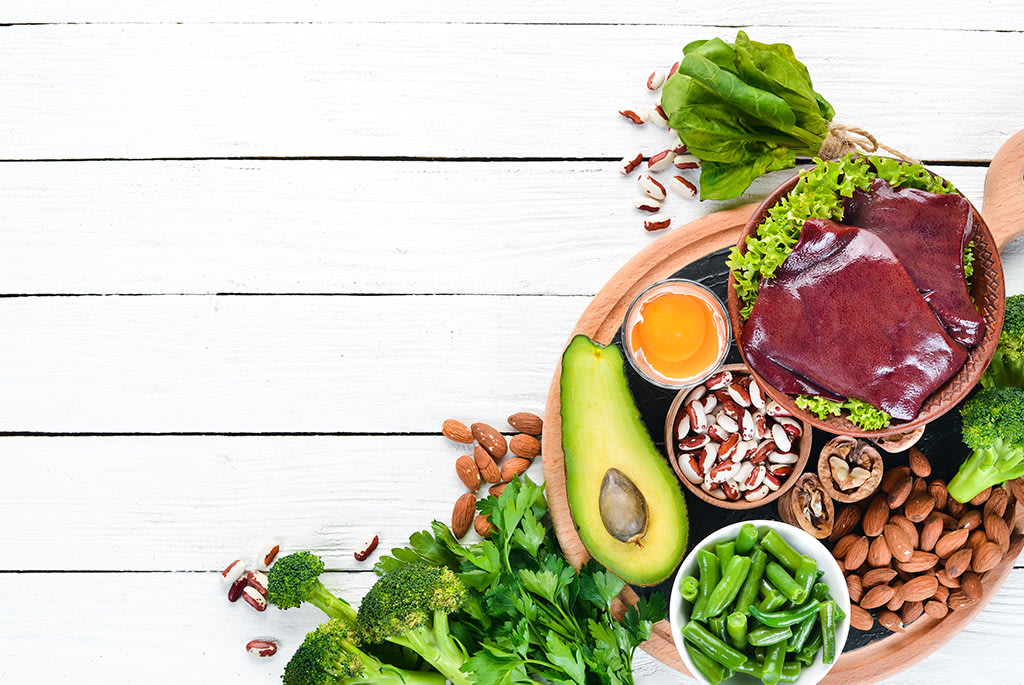
Iron, alongside magnesium, protein, calcium, vitamin B and vitamin C, contributes to a healthy and well-rounded diet, especially for women.
Not only does it provide us with energy to support our fitness efforts, it is also essential for blood production and optimal immune function.
But what actually is it? Why is it good for you? We have the answers.
What is iron?
Iron is an essential mineral that is found in a range of foods, such as beef, oysters, spinach, lentils and more!
Iron isn’t made by our bodies, so we must get it from a healthy and wholesome diet. Yep, this is where healthy eating habits come into play.
Why do you need iron?
Iron is a necessary nutrient in a well-rounded diet.
Iron is essential for blood production. It also aids the transportation of oxygen around the body, helps us produce energy, and supports our immune systems.
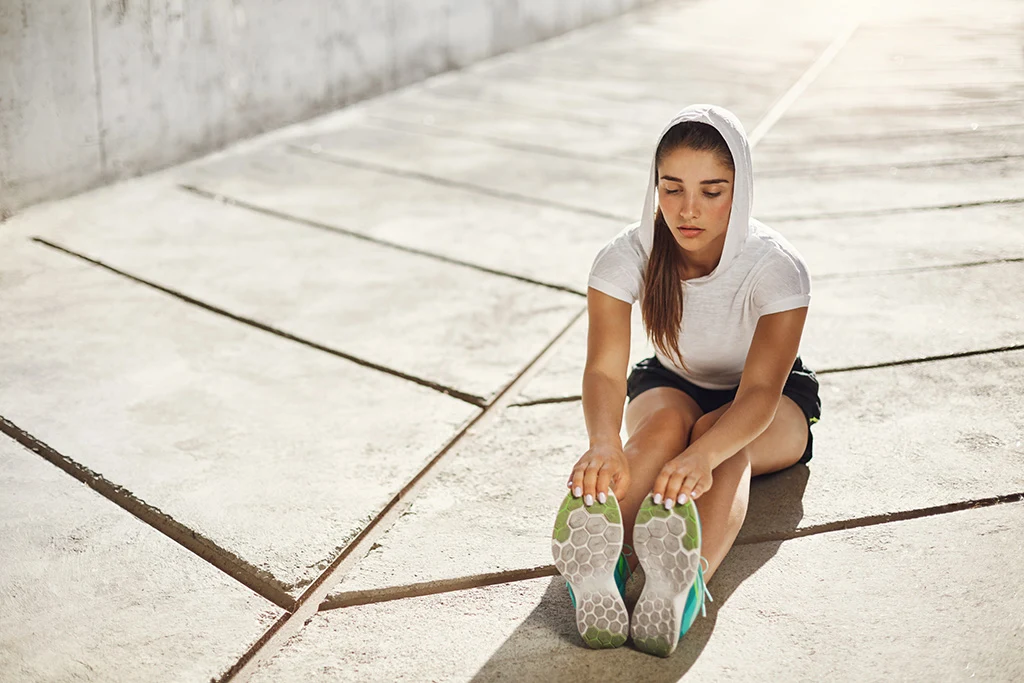
Iron helps our bodies produce energy
Iron assists in transporting oxygen to the brain and is essential for us to perform both physically and mentally.
Healthy iron levels are closely linked to increased focus, stamina, concentration and, you guessed it, energy!
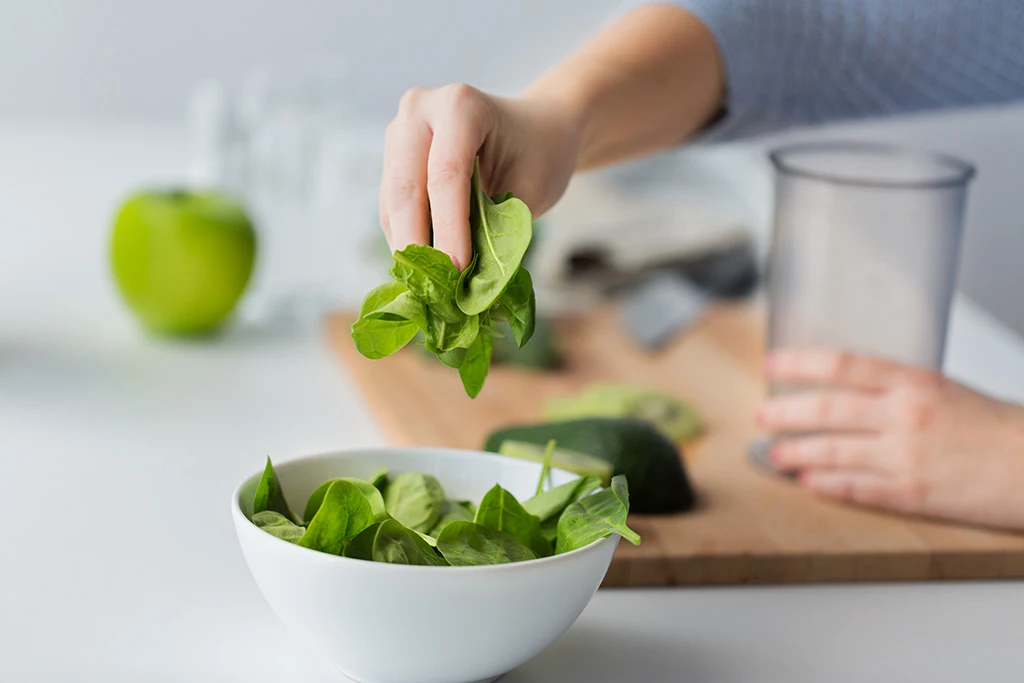
Iron is essential for blood production
When we say iron is essential for blood production, we mean it. Approximately 70% of your body's iron is found in the red blood cells of your blood (hemoglobin) and in muscle tissue (myoglobin).
Hemoglobin is essential for transferring oxygen in your blood to muscle tissue.
Myoglobin, which is found in muscle cells, stores, transports and releases oxygen. And you can bet this is important when it comes to fitness!
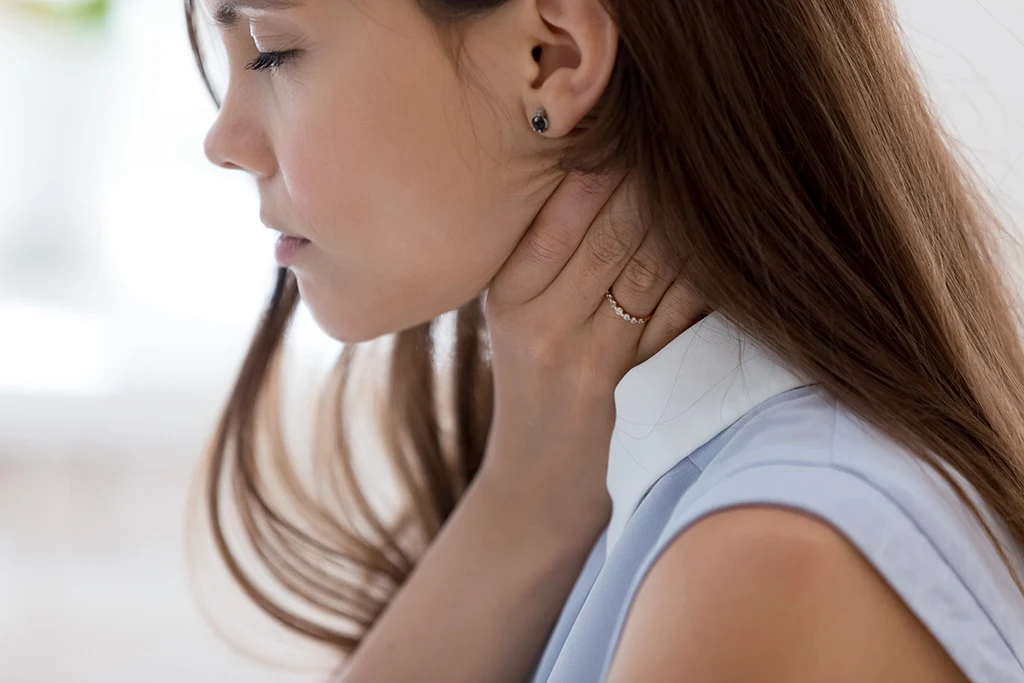
Iron aids optimal immune function
A healthy immune system helps us fight infection and keeps us in optimal health. In part, our immune system depends on sufficient iron levels.
How much iron do you need?
How much iron you need to consume each day depends on your age, gender, and overall health.
As a general rule, women between the ages of 19 and 50 years of age should be consuming 18mg of iron every day. When pregnant, the recommended amount increases to 27mg.
There is such a thing as too much iron, however, so be sure to consume safe levels of the mineral. In the case of iron, more doesn’t equal better.
Causes of an iron deficiency
Iron deficiencies can be caused by a number of health conditions or occurrences. Some may be temporary, others may be long-term.
Causes of an iron deficiency can include:
Blood loss
Inadequate dietary intake
Inability or difficulty in absorbing iron
Of course, there may be other causes at play. If you want to know more about the causes of an iron deficiency, we recommend seeking professional medical advice.
Signs of an iron deficiency
Iron deficiency can be common in females.
Women at high risk of iron deficiency include menstruating women,
pregnant and lactating women, teenage girls and female athletes.
Signs you might have an iron deficiency include:
Unusual tiredness
Shortness of breath
Headaches and dizziness
Dry hair and skin
If you find yourself with any or all of these symptoms, you should seek medical advice.
The best food sources of iron
Iron isn’t made by our bodies, so we need to get it from the food we eat, by consuming iron-rich foods. These foods can be divided into heme iron (primarily from meat) and non-heme iron (primarily from plants).
Whether you follow a keto diet, pescetarian diet, vegetarian diet, or a vegan diet, there is a range of foods you can eat to boost your iron levels.
Better yet, these foods can easily be incorporated into any breakfast, lunch, dinner or snack.
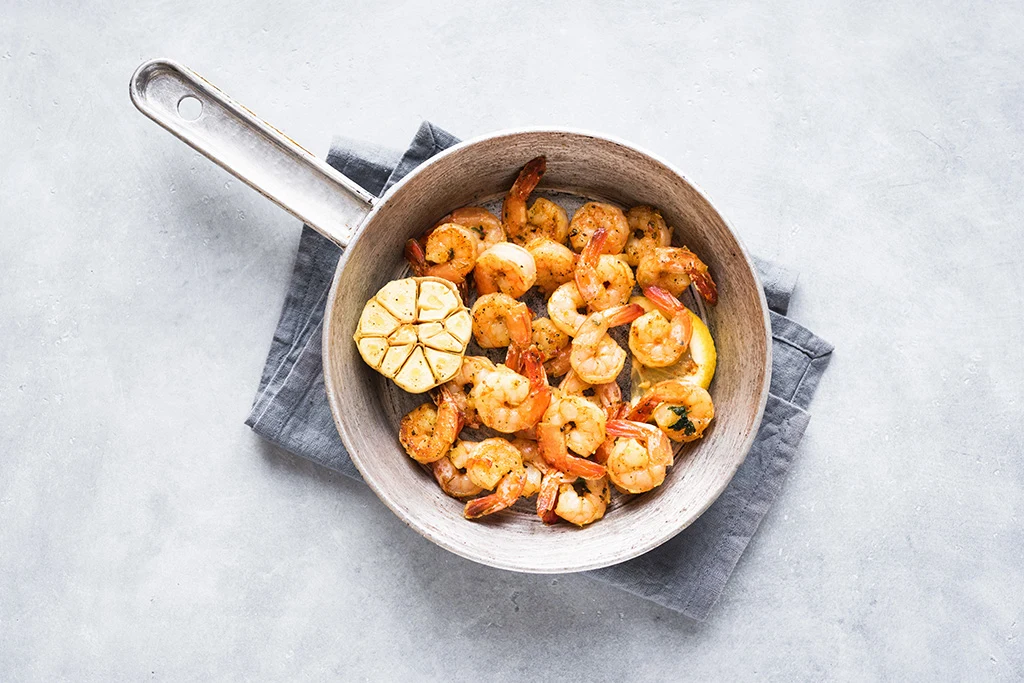
Heme iron-rich foods
Beef: Beef contains an abundant amount of vitamin B12, zinc, iron and vitamin B6. Better yet, there are so many cuts of beef available, which makes it super easy to cook with.
Lamb: Lamb is a rich source of vitamin B12, zinc and iron! Grilled, barbecued or cooked in the slow cooker, it’s a food that can be enjoyed all year round.
Oysters: Oysters are full of iron and zinc, plus they’re low in kilojoules, too!
Octopus: Octopus is naturally high in iron, so next time you find yourself craving seafood, why not consider grilling octopus and enjoying it with a side salad?
Prawns (shrimp): Prawns are fantastic in rice-paper rolls, salads, fajitas or pastas. Alternatively, enjoy them on their own, with a splash of fresh lemon juice.
Sardines: Sardines are packed with omega-3s, vitamin B12, vitamin D and you guessed it — iron! Sardines are great in a pasta or salad.
Scallops: If you consider yourself a whiz in the kitchen, try your hand at scallop ceviche or scallop dumplings for a dose of iron.
Tuna: Add tuna to a salad, poke bowl or pasta, or get creative and make your own sushi, rice-paper rolls or fritters.
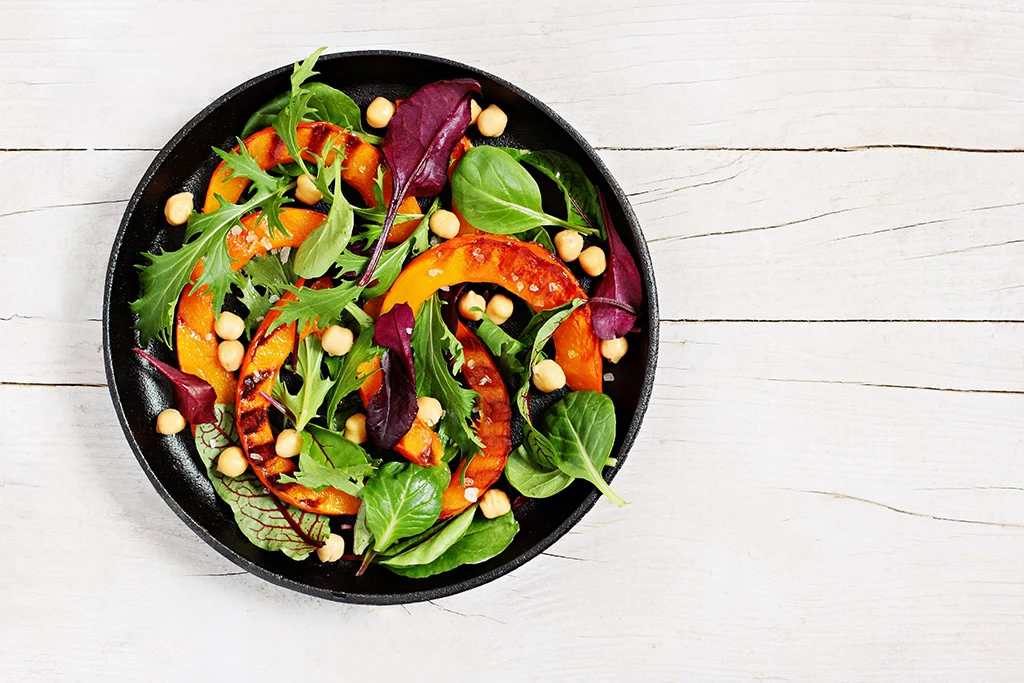
Non-heme iron-rich foods
Spinach: If you’re someone who enjoys egg whites for breakfast, why not add some spinach leaves? It’s equally easy to pop some in a lunchtime salad, or serve it as a side with dinner.
Kale: Kale is great in salads, smoothies or baked as chips!
Asparagus: Asparagus can be steamed, grilled or roasted, and makes an excellent side dish. Try it in Kayla's frittata with asparagus, tomatoes and caramelised onion.
Broccoli: A cup of steamed broccoli is a great addition to a lunch bowl or dinner dish, not to mention contains iron, fibre, vitamin C, potassium and magnesium.
Beans: Beans contain iron, calcium, magnesium, potassium, vitamin A, vitamin K and folate. With so much goodness, what’s not to love?
Edamame: As a snack, in a salad or on the side with sushi or sashimi... is there anything these tasty green soybeans can’t do?
Lentils: Lentils are popular with those following a vegan or vegetarian diet — and with good reason. A superfood in their own right, lentils are a wonderful source of iron, folate, magnesium, potassium and vitamin B6.
Chickpeas: If there was an award for the most versatile food, chickpeas would be in with a good chance. Whether you use chickpeas in curries or salads, or roast them for a snack, or blend to make hummus — chickpeas can do it all.
Tofu: Tofu can be tossed into a salad or a stir-fry. Better yet, it can be matched with so many marinades and sauces, such as satay or chilli and lime. Yum!
Tempeh: Tempeh is great in stir-fries, curries, salads, rice-paper rolls and noodles.
Brown rice: Swap your serve of white rice to brown rice for a healthier, more filling option.
Cashew nuts: Cashew nuts are a great snack or a salad topper. In addition to being a great source of iron, they also contain magnesium, potassium and calcium.
Dried fruits: In need of an iron-rich snack? Dried fruits — apricots, raisins and prunes — are all rich sources of iron. Plus, they are so convenient to eat on the go!
Ladies, up your iron intake!
So ladies, we can all agree that iron is an important part of your diet and overall health (hello increased energy, blood production and optimal immune function!).
And, with so many tasty sources of iron out there, it’s relatively easy to get some into your meals and diet on an ongoing basis!
How do you make sure you get enough iron in your diet? Do you have any great recipes or meal ideas you would like to share? Comment below!

A more empowered you starts with Sweat, and our editorial team is here to bring you the latest fitness tips, trainer recommendations, wellbeing news, nutritional advice, nourishing recipes and free workouts.
* Disclaimer: This blog post is not intended to replace the advice of a medical professional. The above information should not be used to diagnose, treat, or prevent any disease or medical condition. Please consult your doctor before making any changes to your diet, sleep methods, daily activity, or fitness routine. Sweat assumes no responsibility for any personal injury or damage sustained by any recommendations, opinions, or advice given in this article.
Nutrition